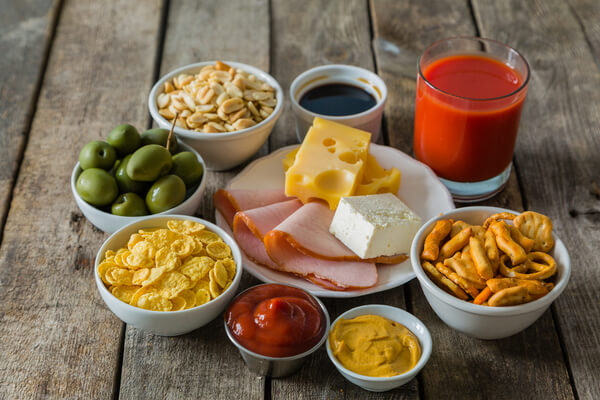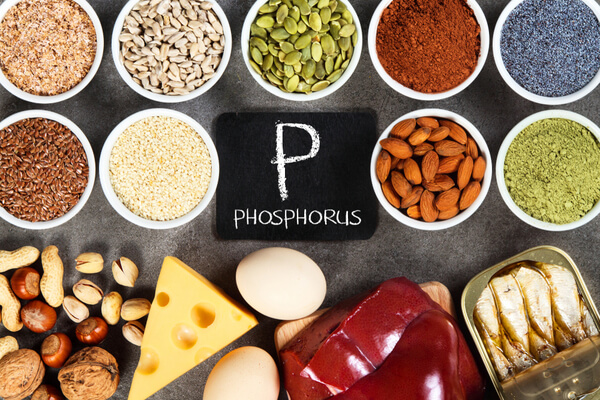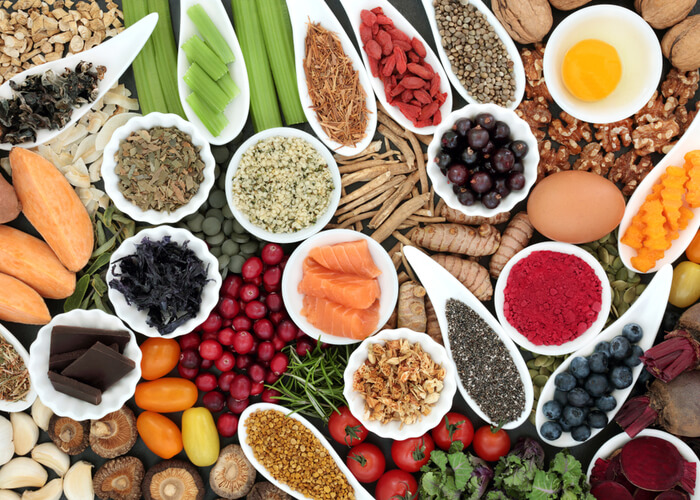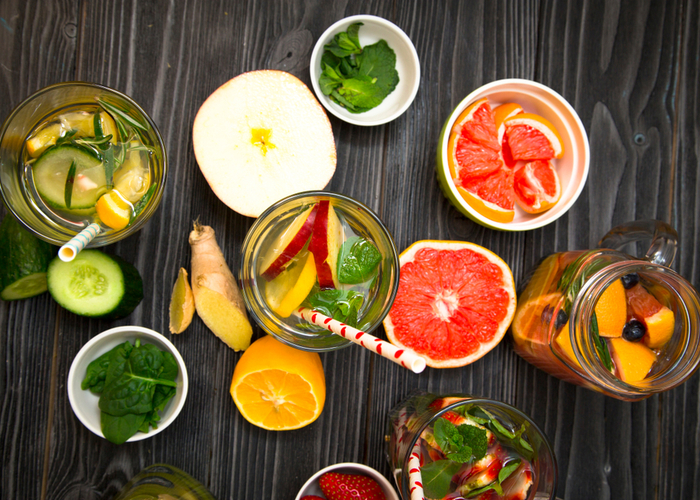It is a great saying, “You don’t need a silver fork to eat good food.” Eating well is not very complicated, if you follow a balanced diet. Healthy nutrition doesn’t entail strict limitations, staying thin, or depriving yourself of your favorite foods. Rather, it is about staying healthy, feeling great, and uplifting your energy levels. So, you need a balanced diet to sustain your body. Dal makhana served warm from a casserole, biryani served hot from a hot case or salads served fresh from a casserole all of these dishes cooked at home have nutrients and make for a balanced diet.
A balanced diet helps you improve your immune system, control weight, and make skin glow. It energizes, hydrates, and keeps your body in optimum condition. It helps to fulfill all your nutritional needs. It includes six main nutrients, i.e., fats, proteins, fiber, vitamins, carbohydrates, and minerals. Different food items have different proportions of nutrients in them. The requirement of nutrients differs according to age, gender, and health of a person.
A healthy eating routine plays an important part in your life; what you put on your plate matters a lot. With some changes in our lifestyle, you can make a big difference in your personality and health. So look for what to put on your plate and what needs to be ditched from your diet. Below is the list of some vitamins and minerals that you need to add to your diet.
1. Vitamin A

Vitamin A, also known as retinal, plays several important functions in your body. Your body needs it in small amounts for the well-functioning of the immune system, visual system, maintenance of epithelial cellular probity, and reproduction. There are two forms of vitamin A present in the human diet. The first is “Performed vitamin a” and the second one is “Provitamin A.” Performed vitamin-retinol and retinyl esters- are found in animal products, like meat, eggs, liver, fish, and dairy (milk, yogurt, and cheese). Provitamin A- carotenoids are abundant in plant-based food, such as vegetables, oil, and fruits. So to get an ample amount of vitamin A on your plate, take a sizzling steak with omelet rolls, season it with cheese, and a glass of flavored milk. The symptoms in case of severe deficiency are blindness, dry eyes, diarrhea, and skin issues.
2. Vitamin B

Vitamin B is a cluster of eight nutrients that play a vital role in the human body. These eight essential nutrients work together in the body and carry out their allotted unique function. Their basic role is to convert food into energy, create new cells, work on tissues and skin. These eight vitamins are; Vitamin B1, B2, B3, B5, B6, B7, B9, and B12. To get Vitamin B complex, color your plate with cheese, marinated salmon, crispy leafy vegetables, meat (especially liver), eggs and yogurt, etc., along with a glass of milk. Weight loss, memory confusion, heart problems, loss of muscle mass, and weak reflexes are the main vitamin B complex deficiency symptoms.
3. Vitamin C

The medical name of Vitamin C is L- Ascorbic acid. It is a water-soluble vitamin present in some foods naturally. It is also available in supplements. It helps the immune system, reduces allergies, and fights infections. It is also required for biochemical and physiological processes in the body. Add a glass of citrus fruits with a plate of salad that includes green pepper, strawberries, tomatoes, turnip, broccoli, and other leafy vegetables in your plate to get more and more vitamin C. The role of vitamin C in the prevention and treatment of colds cannot be ignored. In low vitamin C, you may feel weakness, fatigue, inflammation of gums, hair loss, and spots on the skin.
4. Vitamin D

Vitamin D helps to maintain and regulate the immune and neuromuscular systems. The biggest source of natural vitamin D is skin exposure to sunlight. Vitamin D is directly linked with human mood. So if you want to be happy and satisfied in life, then add vitamin D to your diet. It helps to kick away the depression and promotes healthy bones and teeth. The lack of vitamin D can cause skin infection, back pain, low mood, and hair loss. To embellish your plate with cheesy mushrooms flavored with marinated fish along with sizzling liver to get a sufficient amount of vitamin D.
5. Vitamin E

Vitamin E is a fat-soluble vitamin. It plays the role of anti-oxidant in the body that protects the cell from damage. It is well known for its role in supporting the scalp and reducing skin damage. It is stored in the liver, and a high intake of this vitamin is safe. So fix a portion for vitamin E items in your plate and fill it with avocado, almond, eggs, and pepper. Take a glass of mango or spinach juice to gain some benefits. Its undersupply can damage the retina, weak nerves, and loss of control of body movement.
6. Calcium

Calcium is a mineral present in food. It is important for strong bones and teeth. 99% of body calcium is present in bones. It helps in communication between the brain and other parts of the body. It helps in the regulation of muscular contraction and blood clotting. Fill up your plate with green leafy vegetable salad and season it with cheese or tofu to get calcium-rich food. In breakfast cereal and fruit juice is also the best option for calcium intake. If you are fond of seafood, then stick to sardines and salmon.
7. Sodium

Sodium is an essential nutrient for body growth. It is important for the working of muscles and nerves. Most of the sodium is found in the blood. It gives a salty flavor to food. So to get your quota of sodium, don’t hesitate to fill your plate with pickled cucumber along with roasted nuts and beans with a slice of French bread. Consumption of sodium should be little as possible as it causes high blood pressure. During teatime, you can enjoy egg biscuits and snacks.
8. Iron

Iron is a mineral naturally present in red blood cells. Its function is to transfer oxygen from the lungs to tissues. It is mostly found in red meat. For an iron-rich platter, you can have any meat, chicken along with some nuts and whole-grain chapati. A chilled glass of spinach juice is the best option for a drink. Salad of carrots, sweet potatoes, and apricots is also a great option.
9. Phosphorus

Phosphorus is found in protein food. It helps in the formation of bones and teeth, and it repairs cells and tissues. Feel free to decor your platter with meat, fish, and eggs. A glass of milk can also be taken to get this mineral. It is also present in nuts, seeds, beans, and grains.
10. Zinc

Zinc is a mineral found in the body as it helps to heal a wound, boost the immune system, and activate the metabolism function. Foods high in zinc include oyster, beef, tofu, chicken, nuts, lentil, mushrooms, yogurt, and oatmeal. So enjoy beef steak or chicken drumsticks with almond sauce and season it with mushrooms and tofu. You can also go for sweet yogurt or ricotta.
Conclusion
Vitamins and minerals are as important as water and air for living. They keep your body functional and protect you from diseases. To get them in the proper amount, adopt a healthy diet. Nature has blessed this planet with the availability of rich foods, so it’s easy to meet your daily needs from everyday meal. You can decorate a healthy platter by giving it colors with crispy veggies, gazing dips, crunchy nuts, and fresh fruits, an eye candy to evoke taste buds!








Recent Comments